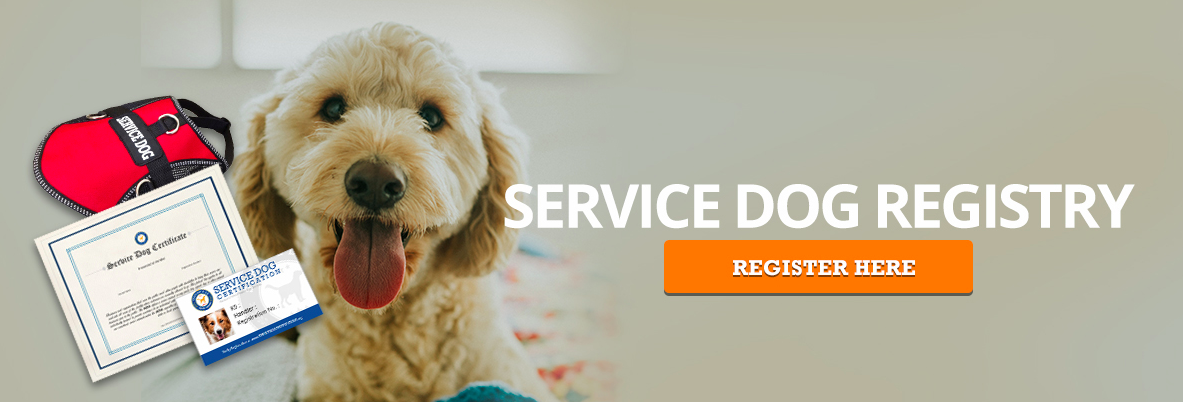Home Page › Blog › What are Diabetic Service Dogs?
What are Diabetic Service Dogs?

Alert dogs are best known for guiding the visually impaired, sniffing out drugs and bombs, or providing mobility assistance for people with severe disabilities. Diabetic Service Dogs, or DSDs for short, are service dogs trained to detect hypoglycemia and alert their owners to treat it while they are still conscious and aware. The ADA, or the American Disability Association, considers this to be a type of service dog because diabetes is a type of disability. DSDs detect low blood sugar through organic compounds in the person’s breath and are trained to respond to these changes in blood sugar. Whether the individual has Type I, Type II, or hypoglycemia unawareness, DSDs can react to these changes in compounds and alert the owner to act.
What services do Diabetic Service Dogs provide?
While the primary objective of a DSD is to notify their owner of any changes to their blood sugar levels, they also provide other ways of service that come with a service animal, such as:
- A Sense of Comfort for the Owner
- Increased Physical Activity
- Improved Regulation of Blood Sugar Levels
- Increased Socialization and Independence
- A Sense of Ease for Family Members
DSDs can also be used as a medical expense. As long as the owner’s disability is legally recognized, the costs of buying, training and maintaining the owner’s service dog can count towards their tax assessments. While DSDs provide companionship, DSDs cannot be the only reliable source for people to check their blood sugar. Owners of DSDs should not rely entirely on their service animals and should check their glucose monitors for their levels and take extra precaution when dealing with their health.

How do trainers train a Diabetic Service Dog?
Training varies depending on the organization or trainer. Diabetic Service Dogs are trained from birth until they are around 18 months old, beginning with training in public access and social conditioning to help to expose them to various environments, including scents, objects, and sounds. From there, trainers work the dogs towards the next step, scent detection work. In the case for DSDs, these dogs are trained to detect the hypoglycemic scent, obtained from a person with diabetes while their blood sugar level is below 70. These dogs are then tested under the Assistance Dogs International (ADI) public access test, which follows through a series of objectives to evaluate the dog’s behavior in distracting environments. For owners who wish to train their dogs, they should partner with a trainer experienced in training service dogs and follows the ADA guidelines.
How accurate are Diabetic Service Dogs at detecting low blood sugar?
Dogs are known to have a great ability to smell. This ability to detect smell is based on the number of olfactory cells they have. Compared to humans, who have 5 million olfactory cells, dogs have up to 220 million olfactory cells. This means that a dogs nose can be 1,000 times more sensitive than a human. In practice, DSDs alert their owners by recognizing a scent emitted when that diabetics blood sugar begins to drop rapidly. However, the accuracy of the dog’s ability to smell that scent or what precisely the smell is is up to debate by many researchers. According to studies, results vary, with some stating that the dog’s ability isn’t as accurate and others stating the opposite. Hence, the standards for what accounts as a precise sense of smell for DSDs is currently unavailable and is still being determined.
How to register your Diabetic Service Dog
Because the ADA does not directly support service dog registration, it is essential to find the right organization to register your service dog. The right Service Dog Certifications and Registry will provide support for service dog owners. By ordering a custom identification card for you and your Service Dog, you help others follow the guidelines set out by the ADA and helps store employees grant public access to you even if they have a no-pet policy. It is important to work with a trustworthy source so you can direct store employees to the right resource as well. Service Dog Certifications, however, does not train or provide assistance dogs for people with disabilities. Instead, they recommend adopting a service dog and working with a trainer if you have the means. If that is not possible, no worries, you can absolutely still adopt a service dog and train them yourself or seek support from a local trainer.
Some tips on choosing the right organization/trainer include:
- Don’t get a dog from a trainer or organization that will not allow you to visit the training facility
- Ask the trainer about follow-up support
- Ask for test demonstrations for the puppy as you would with an adult dog
- Ask for health records, demand to see the kennel and parents of the pup.
- Ask about scent imprint procedures and exactly how the trainers teach their dogs to imprint.
- After purchasing your new DSD, get a health evaluation from your vet: Hip x-ray, routine blood tests, heartworm snap.
About the Author: The writing team at Service Dog Certifications is made up of folks who really know their stuff when it comes to disability laws and assistance animals. Many of our writers and editors have service dogs themselves and share insights from their own experiences. All of us have a passion for disability rights and animals.
4 comments
Leave a Reply Cancel reply
Latest Posts

How to Bring a Service Dog to Disneyland
Trained service dogs are more than welcome to join their handlers at Disneyland. In this guide, we’ll explain Disneyland’s policies and give practical advice for bringing a service dog to Disneyland for the first time. Disneyland’s Service Dog Policies The Magic Kingdom is happy to welcome trained service dogs across most park locations! They kindly […]

Read More

Can Dogs Eat Tomatoes?
Yes! Dogs can safely enjoy tomatoes, but there are a few risks to be aware of so you can feed your dog responsibly. Fully ripe tomatoes (without the stems and leaves) can actually have nutrients that are good for your pup. Tomatoes have chlorogenic acid, an antioxidant that can have anti-inflammatory effects in cells. They’re […]

Read More

Can a Primary Care Doctor Write an ESA Letter?
Your family doctor, also called a primary care physician (PCP), can write a letter recommending an emotional support animal. We’ll explain what legally gives them that ability and explore what better options might be available for you. Why are Physicians Able to Write an ESA Letter? To turn your pet into an emotional support animal, […]

Read More







I want to know how to get a chichuah dog please can you let me know soon
I have a diabetic detection service dog and I’m in Atlanta Georgia I became homeless and none of the shoulders no doubt us to enter
how can we fine a dog that’s already registered for this kind of job? My grandmother has diabodies and no pets to help her. I want to help because her previous dog already passed a few years ago and I herd on “American Ninja Warrior” a few years ago that dogs could help with this problem. I hope you can help me help my grandmother because this family has suffered enough with all kinds of health issues, like me being Autistic, my sister having her own “painful” problems, one family member hallucinating 24/7, and with my grandmother having diabodies on top of that is too much. If you want to help us, then contact me when you can.
It’s almost always better for a trainer like myself to introduce training to a dog picked by the owner. Most dogs can be trained, depending on disposition, age, and instinctual harmony, a dog can be trained to alert to diabetic symptoms, blood sugar fluctuation below or over a chosen amount, as well as specialized needs training, within 2 weeks to 2 months.